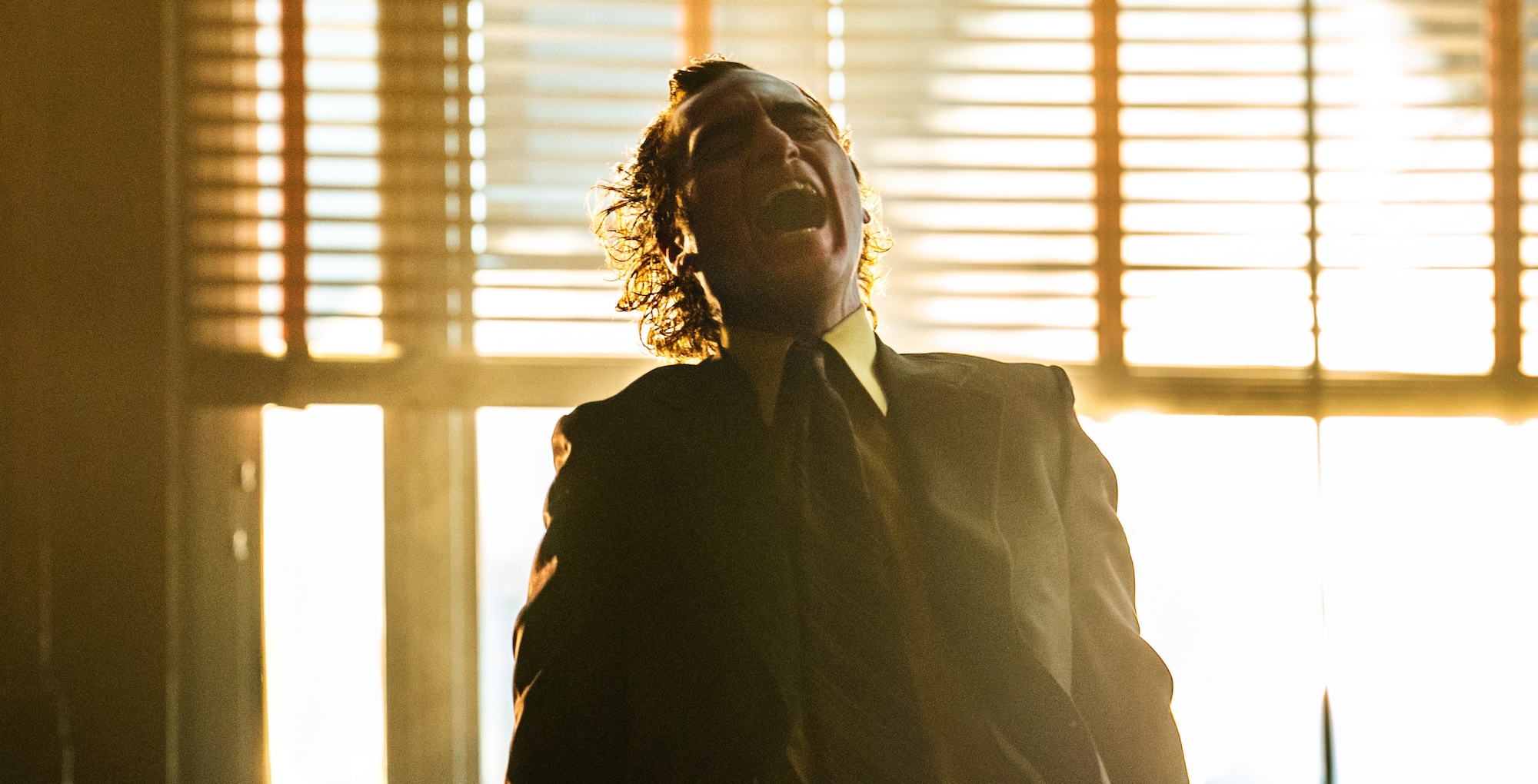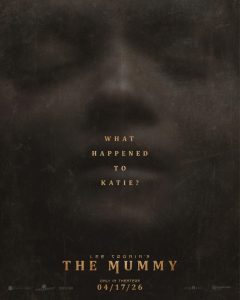
There has been much discourse of late about the idea of superhero movie fatigue. Too much CGI, no peril, hokey humor, etc. Well this ain’t that. But that might be one of the few plus points of this absolute mess of a movie. Touted as a musical and teased as a Bonnie and Clyde-style thriller, Joker: Folie à Deux is neither of those things either. Essentially it’s a courtroom drama without the drama, a grubby prison movie with no point to make, and a romance with no chemistry, investment or characterization. Which is not to detract from the performances of both Joaquin Phoenix and Lady Gaga, who are both excellent and deserved better.
Picking up some time after the events of Joker, Arthur Fleck (Phoenix) is incarcerated in Arkham. Drugged up to the eyeballs, he’s become a model prisoner, exchanging jokes for cigarettes with the friendly(-ish) guard Jackie Sullivan (Brendan Gleeson). But after his on-air execution of talk show host Murray Franklin (Robert de Niro) and his vigilante antics in the last movie, he’s become the face of a disruptive movement, with joker-masked people picketing Arkham Asylum while the press hang out for stories or glimpses of Arthur as he awaits for his trial.
Arthur’s lawyer Maryanne Stewart (Catherine Keener) wants to argue that Arthur has experienced a fragmentation of his personality as initiated by the severe abuse he experienced in childhood. The subway attack in the last movie, the defense argues, triggered all the subsequent violence, and Arthur should be shown leniency because of his mental state. It’s a decent defense, but anathema to his fans who want the Joker to be an anarchic figurehead giving the finger to authority.
While Stewart prepares his case, and he waits for trial, Sullivan convinces the Arkham bosses to allow Arthur to attend a singing group in the minimum security wing. There he meets Harleen “Lee” Quinzel (Gaga). Soon the two are toppling into a fantasy world together, which is manifested in elaborate song and dance routines.
In terms of what actually happens, outside of that fantasy world, the truth is, not much. In fact, were it not for the musical numbers, this would be one of the drabbest movies imaginable, set almost entirely in a dark, miserable mental institution and a stuffy courtroom. Two hours and 20 mins of that is a lot.
The song and dance sections add blasts of much needed color and a change of pace and scenery, but calling this movie a musical is a bit of a stretch. Phoenix and Gaga are both natural physical performers and grip the screen, but even these musical interludes get a little bit tiresome since they aren’t really for anything—they show Lee and Arthur’s interior fantasy life but there are so many of them that each extra number doesn’t add anything other than a break from the dreary courtroom or grim prison. And the scene in the trailer and from the poster of the two dancing down the iconic steps from the first film isn’t even in the movie.
While the first Joker might have had a slightly confused message, it was at least imbued with atmosphere and tension, painting a ‘70s Gotham on the brink of breaking point. Folie à Deux does the opposite, with a story that’s of no consequence. Arthur killed six people, one on air, in the last movie. The trial is hardly nail-biting. Aping the Ted Bundy trial, which, like Arthur’s, was also a televised media circus, Arthur begins silent and sullen, later transforming into Joker and acting as his own attorney (as Bundy did). When he’s Arthur, he’s very boring. When he’s Joker, he’s very annoying. It’s not Phoenix’s fault, he does his absolute best to convey the interior conflict of Arthur and in a final redemptive(ish) speech he’s almost moving, but outside of the fantasy scenes he really doesn’t have much more to do than shuffle around corridors looking miserable.
A million miles from Jack Nicholson’s villainous showman, Heath Ledger’s terrifying anarchist, and even Jared Leto insufferable gangster, Phoenix’s Joker, when he finally shows up, is nothing more than a cypher. That’s no doubt the point—the press want him to be one thing, the followers and his fellow prisoners another, and Lee something else again—but it’s a bit depressing that one of DC’s best villains is reduced to a sad sack with a victim complex.
And Harley is betrayed even further. Despite Gaga’s best efforts, Lee is barely a character at all with scant screen time and no actual personality of her own. We know nothing about Lee other than that she’s a liar and a fantasist. As with Joker, Todd Philips is going for realism, steering well away from the flashes and bangs more usual in the genre, and while this worked in his oppressive Scorsese homage five years ago, this tension-free courtroom sequel with musical cutaways doesn’t land at all, despite the talent in front of the camera. And it still manages to have an unnecessarily mean spirited streak, despite so little actually happening. A folly all round.
Joker: Folie à Deux is in cinemas now. Learn more about Den of Geek’s review process and why you can trust our recommendations here.
The post Joker: Folie à Deux Review: A Tuneless Musical Even with Lady Gaga appeared first on Den of Geek.












